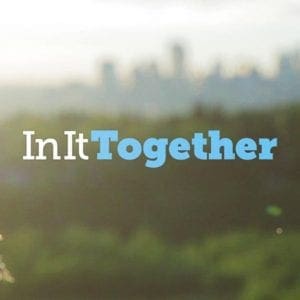 To care nothing for diversity, in a biblical sense, is evidence we’ve got a hole in our understanding of the gospel.
To care nothing for diversity, in a biblical sense, is evidence we’ve got a hole in our understanding of the gospel.
I’ve been thinking about this in the context of MLK Day, which we all just commemorated. The entire message of the gospel was birthed in the context of racial reconciliation. Think about it: before the gospel, Jews (the people of God) weren’t allowed to eat or even enter the house of Gentiles (for most of us, that’s you and me). We were unclean; to speak to us, interact with us, or be in relationship with us would taint and contaminate them. As a Gentile, there were places in the Temple you weren’t able to enter. If you did, you were dead. It was pretty much that simple, as or more restrictive as any 1950s Jim Crow law in the American South.
I was listening to a recent podcast where Matt Chandler notes that the gospel changed all that. Jesus told the Jews stories about people like the Good Samaritan. In these stories, the Samaritan, the foreigner, the racially unclean, was the hero of the story. Jesus routinely healed people like the centurion’s servant, also an unclean pagan. After His death, He appeared to Peter, and told him that a Gentile named Cornelius would be coming to him, and that he should share the gospel with him. He did, and Cornelius was saved. Just like that, reconciliation with God became possible for people like you and me, and 2,000 years later, here we are. All because, in that generation, Jews who were driven by the reconciling power of the gospel did the hard work of reaching out, seeking out relationship with people who weren’t like them, and testified to the radical love of Christ.
I don’t know why we’re created differently: different races, different nationalities, and different backgrounds. I deeply believe it’s because, in some ways we don’t fully understand, we more completely reflect God’s image in all our diversity as human beings than any one group of us does. It may also be because God wants us to learn to love. It’s way easier to develop affinity for and get along with people who are exactly like me. I don’t have to explain myself; don’t have to try that hard to make myself understood, or to understand them, or to reconcile with them when I wrong them. In short, they’re easier to love. They require very little sacrifice or investment.
The thing is, though, the gospel is really all about sacrifice and investment, isn’t it? Isn’t it about a God who, when we were living as vile rebels, hating Him with no good in us, invested everything in us, sacrificed everything? Didn’t Jesus say, “If you love only those who love you, what benefit to you is that? Don’t even the Gentiles do the same?” Anyone who has more than a first-grade understanding of love knows its depth is measured not in feeling, but in what you’re willing to sacrifice and invest in it.
That’s why, for the follower of Christ, pursuing reconciliation and unity under Christ in all our diversity is not a political issue; it’s a gospel one. It’s as inherent to who we say we are and what we say we believe as being lovers of life, of truth, or of love itself. And, a school that teaches Jesus has to teach reconciliation and unity in diversity, or it’s not teaching the whole gospel.
There’s a line of thought that says, “Just wait. Just pray and keep preaching the gospel. We don’t really have to do anything. Reconciliation and unity in diversity will just happen as an outgrowth of all that. Let’s just focus on school.” I appreciate that perspective as being well-intentioned, but the power of defaulting to sameness in the wake of inaction is simply too powerful. We’ve actually tried just praying and hoping, and the lack of progress reminds me of the old saying, “hope is not a strategy.” There will never be a time in history, in any generation, until Jesus returns, when the gospel won’t have to be intentionally and affirmatively proclaimed, the poor intentionally and affirmatively cared for, life intentionally and affirmatively defended, and reconciliation of difference, whether race, nationality, or anything else, intentionally and affirmatively pursued.
Like I said a few weeks ago, in the New Jerusalem, all this will be healed, and we will rejoice and rest. Until that day comes, being the Body of Christ, and being a school that is part of the Body of Jesus, means teaching, proclaiming and defending the whole gospel, in all its beauty and complexity. There is nothing more difficult, more glorious, and more worthwhile than doing so, and no greater lesson we can teach our kids.
Leave a Reply